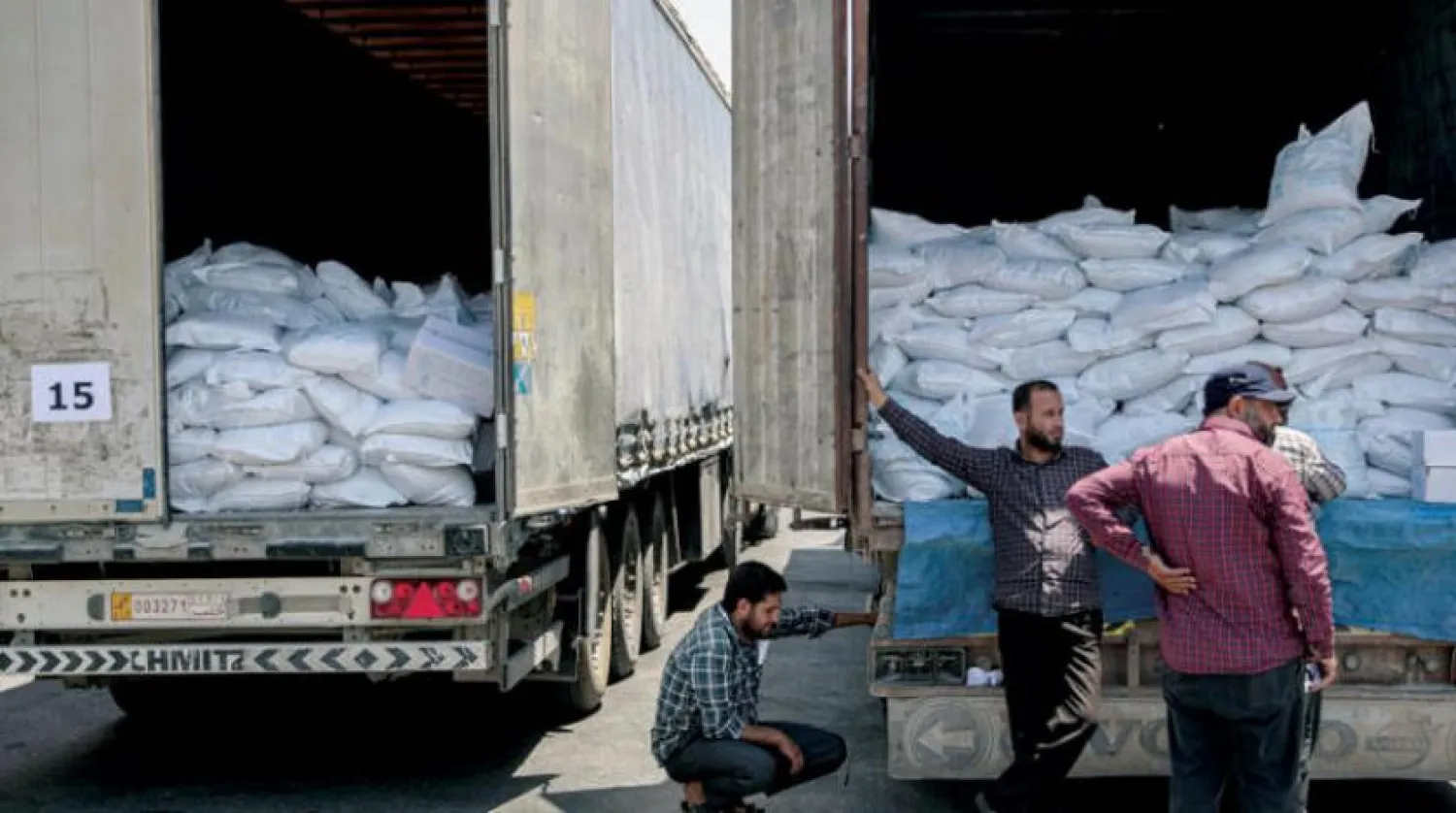Russia is preparing for the “test of strength” during the Security Council session on July 10 that will discuss extending the international mandate on humanitarian aid to Syria.
The US is mobilizing broad support for its position, which emerged in the recent Rome meeting. It also warned Moscow against using the veto in the Security Council to thwart a Western draft resolution extending the mechanism for the entry of humanitarian aid for an additional year.
The Russian threat to use its veto against any attempt to expand the aid entry mechanism is a strong message to the condition put forward by Washington.
It also constituted a point of contention with Turkey, which opposes Moscow's move to close the Bab al-Hawa crossing.
Russian Foreign Minister Sergei Lavrov visited Antalya on Wednesday to harness Turkey's support. The visit is considered proactive to ensure the success of the Astana peace talks, which Moscow is organizing on July 6 in the Kazakh capital, Nursultan.
The meeting aims to reach full understandings with Iran and Turkey ahead of the Security Council session.
Lavrov stressed Moscow's opposition to a new draft resolution submitted to UN Security Council on opening a second corridor for delivering assistance to Syria across borders.
During a joint press conference with his Turkish counterpart, Mevlut Cavusoglu, Lavrov said that if all countries are concerned about the humanitarian plight of the Syrian people, they should analyze all the reasons that have created this situation, starting with the sanctions.
Meanwhile, the visit of the Russian President's Special Envoy to Syria, Alexander Lavrentiev, to Damascus Thursday, was also part of Moscow's moves in preparation for the Astana talks.
President Bashar al-Assad's meeting with Lavrentiev and the accompanying delegation in Damascus focused on bilateral strategic relations and areas of cooperation and means of expanding them to serve the interest of both peoples and countries.
The draft resolution circulated by Norway and Ireland would keep the Bab al-Hawa crossing and restore aid deliveries through the al-Yaroubiya crossing point from Iraq in the northeast that was closed in January 2020.
It would also end the six-month mandate Russia insisted on and restore a one-year mandate.
However, the US ambassador to the Security Council, Linda Thomas Greenfield, expressed Washington's dissatisfaction with the new proposal, insisting on the need to reopen the third crossing as well.
A Russian diplomat told Asharq Al-Awsat that Moscow will use its veto during the Security Council session if Western countries insist on presenting that draft resolution.
He stressed that any discussion regarding humanitarian aid cannot violate the sovereignty and territorial integrity of Syria, adding that Russia will not allow setting a precedent of this kind.
He pointed out that the issue of humanitarian crossings is at the heart of the principle of sovereignty, adding that any intention to open new crossings or extend the international mandate must be launched in coordination and understanding with the legitimate government in Damascus.
The diplomat denied allegations about Russia's intransigence, saying it stems from claims that contradict international laws and Security Council resolutions, which all emphasized the importance of respecting Syria’s sovereignty.
The Russian diplomat pointed out that the economic crisis in Syria is the major issue, and Western sanctions are the main reason for the aggravation of the situation.
The Russian diplomat noted that Ankara and Tehran are coordinating within the framework of the Astana Group, adding that the West should cooperate if it is keen on improving the humanitarian situation in Syria.
The diplomat revealed a "new initiative" that might be launched during the Astana meeting relating to the humanitarian aid issue, focused on declaring the group's readiness to find an appropriate mechanism to arrange the entry of humanitarian aid in cooperation with Damascus.
He also indicated that the next meeting would focus on stabilizing the truce and setting specific mechanisms to implement previous decisions on Idlib, including the establishment of the demilitarized zone, the withdrawal of fighters, and the opening of international roads.
The second item relates to settling the situation of fighters who handed their weapons or promised to hand them over and ensure that they are not subjected to persecution.









